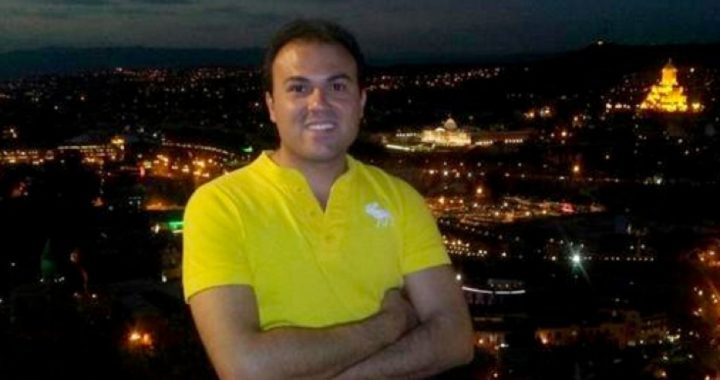
ISIS terrorists who are wreaking havoc, misery, and murder in Iraq — executing Christians and beheading children, now have a new target. Iranian-American Pastor Saeed Abedini (shown), imprisoned for his faith in the notorious Rajai Shahr Prison near Tehran, Iran, has been threatened by ISIS thugs being held in the same prison, according to the American Center for Law and Justice (ACLJ).
The conservative, Christian legal and humanitarian advocacy group, which has been at the forefront of efforts to secure Abedini’s release and see him returned to his home in the United States, reported August 13 that ISIS criminals imprisoned in the same ward as Pastor Abedini, “have communicated through other prisoners that they will kill him because of his Christian faith.” According to the ACLJ report, Abedini, who is serving an eight-year prison term for his church and humanitarian work among his native Iranian people, communicated to family members recently that his life is in danger from imprisoned Islamic criminals.
“Though the ISIS terrorists are held in a separate section of the prison ward,” wrote the ACLJ’s Jordan Sekulow in a post on the crisis, “they have on several occasions made their way by Pastor Saeed’s section on their way back from the prison yard, forcing Pastor Saeed to hide.” Sekulow added that Abedini is also in danger of the violent terrorists during short exercise period outdoors, in which the thugs participate. “Pastor Saeed has been forced to remain in his cell and refuse to use his allotted time in the prison yard,” Sekulow wrote.
Abedini has been imprisoned in Iran since his arrest nearly two years ago when he traveled from the United States to the Islamic country to oversee the building of a children’s home in the city of Rasht. Abedini converted to Christianity from Islam several years ago, eventually becoming a Christian pastor, and while Iran officially recognizes Christianity as a minority religion in the country, those who convert to the faith from Islam face oppression and even criminal charges.
Abedini’s wife Naghmeh, who has remained in the United States with the couple’s two children, wrote in a recent Facebook post that “there are ISIS terrorists in Saeed’s ward now, which is causing new threats for Saeed as a Christian convert and pastor. This is hard to hear as his wife, especially with all that is happening in Iraq. I am believing and trusting in Jesus. He is in control. Please continue to pray for Saeed’s safety and release.”
Naghmeh, who in March 2013 testified to the U.S. Congress in an attempt to prod the State Department into taking a more active role in the case, has been critical of the Obama administration’s passive posture toward securing her husband’s release. She testified of her disappointment that “as a country founded on religious freedom, our government has been awkwardly silent as an American citizen is wasting away in an Iranian prison because he chose to practice his God-given right to choose his religion,” she said.
She told Congress that as her imprisoned husband faces daily threats because of his refusal to deny his Christian faith, “President Obama has chosen to remain silent on this critical human and religious rights case of an American imprisoned in Iran.”
While Obama reportedly raised the issue of Abedini’s imprisonment during an October 2013 phone call with Iranian president Hassan Rouhani, the president’s apparent lack of interest in pushing for the pastor’s freedom has caused groups such as the ACLJ to keep pressure on him in the press.
“This is an extremely dangerous development that puts Pastor Saeed’s life at grave risk,” said ACLJ president Jay Sekulow. “We call on President Obama and Secretary [of State John] Kerry to intervene immediately to secure Pastor Saeed’s release and to ensure that he is protected during this transfer to freedom. Pastor Saeed, who is approaching his second year of imprisonment in Iran, must be returned to his family without delay.”



